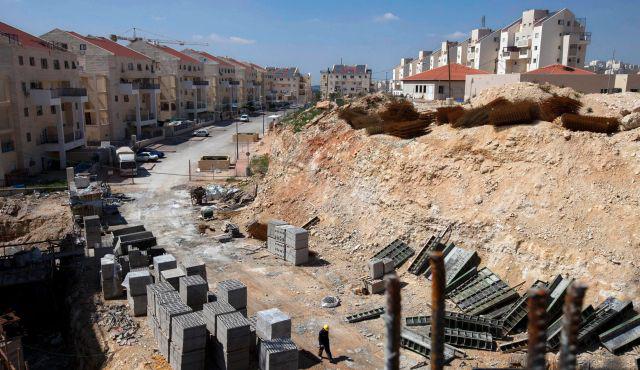TEL AVIV — A major pension fund manager based in the Netherlands said on Wednesday it will divest from five Israeli banks over their dealings with Jewish settlements on occupied land.
The move by PGGM reflects tension between Israel and the European Union (EU) over doing business with Israeli institutions involved in settlements in the West Bank and East Jerusalem.
Its decision was swiftly welcomed by the Palestinians.
PGGM cited a non-disclosure policy it said barred it from publishing exactly how much it had invested in Israeli banks, but gave a general estimate saying its largest client had shares in these banks totalling at least 9 million euros in 2012.
The lenders involved — Bank Hapoalim, Bank Leumi, First International Bank of Israel, Israel Discount Bank and Mizrahi Tefahot Bank — declined to comment.
“For several years, PGGM has been in dialogue with these banks. The reason for this engagement was their involvement in financing Israeli settlements in the occupied Palestinian territories,” PGGM said in a statement.
“This was a concern, as the settlements in the Palestinian territories are considered illegal under international humanitarian law,” it added.
PGGM is among the Netherlands’ largest pension fund managers, with assets in excess of 153 billion euros ($210 billion).
“Boycotts must be used to put pressure on the occupation state [Israel] so that it pays a dear price for its continuing occupation of Palestinian land and violation of international law,” Palestinian MP Qais Abdul Kareem said in a statement.
Palestinian officials are engaging with Israel in difficult US-backed peace talks to establish an independent state, but have warned they may soon bring Israel before the International Criminal Court over its settlement policies.
The officials welcomed PGGM’s move, and decisions by two Dutch companies in the last two months to suspend dealings with Israeli counterparts to build water facilities on occupied land.
The settlements are built in areas Israel captured in a 1967 war and which are now home to more than 500,000 Israelis. Palestinians want the land for part of a future state.
Israel, citing security concerns and historic and Biblical links to the territory, says it intends to keep some settlements in any future peace deal.
Relations between Israel and the EU, its biggest economic partner, have grown rockier in recent years, with the EU becoming more vocal in its criticism of Jewish settlements, saying they imperil the chances of peace with the Palestinians.
Tensions mounted in July when the EU’s Executive Commission announced it would bar financial assistance to any Israeli organisation operating in the West Bank from 2014.
The announcement threatened to disqualify Israel from a prestigious EU scientific research project, but it joined after the two sides reached a compromise in November which allowed Israel to say it rejected the new guidelines.
Some Palestinians have championed what they call the Boycott, Divestment and Sanctions Movement to convince international institutions to cut ties with Israel as a criticism of its treatment of Palestinians.
Israeli officials reject those efforts, saying they apply a double standard to Israel and are aimed at delegitimising it as a Jewish state.
Palestinian President Mahmoud Abbas said in December he backed a boycott of the settlements, but not of Israel itself.
But top Israeli peace negotiator Tzipi Livni last month described the conflict with the Palestinians as “the glass ceiling of Israel’s economy”, saying it would start with Israeli settlements but could move to other Israeli business interests.
“It won’t end there. The boycott is moving and advancing uniformly and exponentially,” Livni was quoted as saying by the Israeli Yedioth Ahranoth newspaper.



















